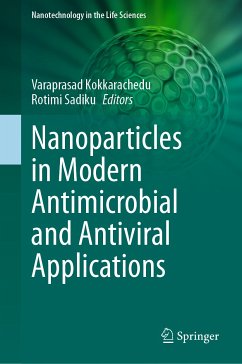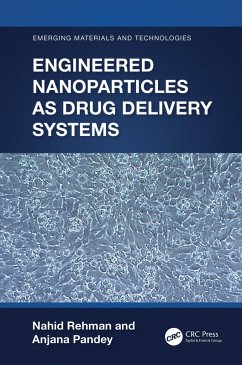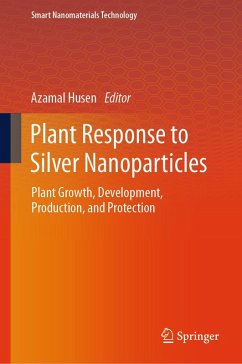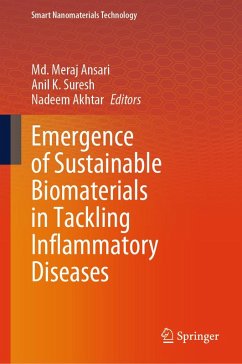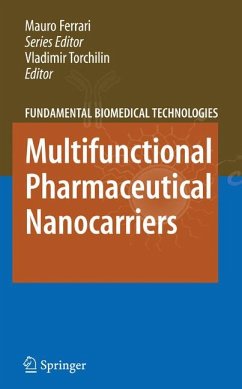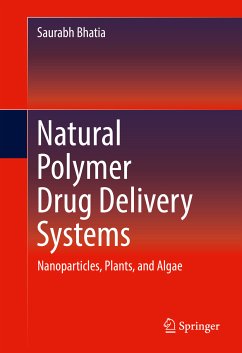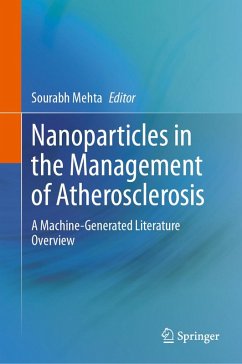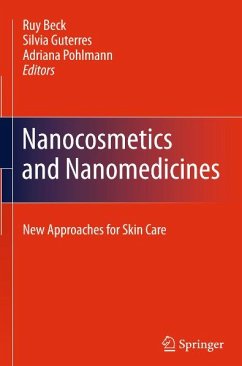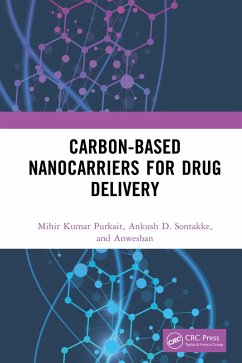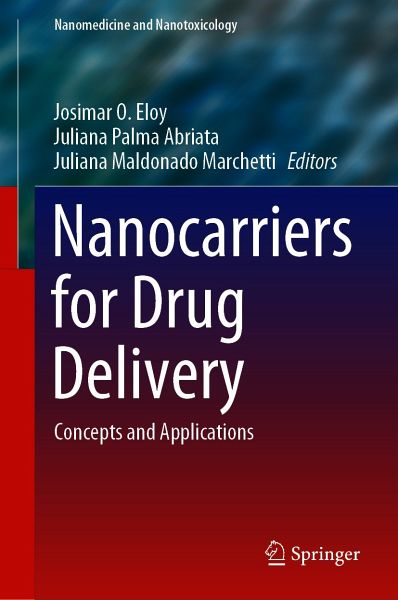
Nanocarriers for Drug Delivery (eBook, PDF)
Concepts and Applications
Redaktion: Eloy, Josimar O.; Marchetti, Juliana Maldonado; Abriata, Juliana Palma
Versandkostenfrei!
Sofort per Download lieferbar
136,95 €
inkl. MwSt.
Weitere Ausgaben:

PAYBACK Punkte
68 °P sammeln!
This book covers basic aspects of different nanoparticles, including type of materials, lipid, polymeric and inorganic structures, synthesis strategies, as well as the main physicochemical characterization techniques. Moreover, this book addresses applications for both treatment and diagnosis of diseases, highlighting in vitro and in vivo findings and clinical evaluation. The chapters highlight the main barriers for drug delivery which can benefit from nanoencapsulation: the topical and oral routes. The main innovations in the field, such as gene therapy and functionalization of nanoparticles ...
This book covers basic aspects of different nanoparticles, including type of materials, lipid, polymeric and inorganic structures, synthesis strategies, as well as the main physicochemical characterization techniques. Moreover, this book addresses applications for both treatment and diagnosis of diseases, highlighting in vitro and in vivo findings and clinical evaluation. The chapters highlight the main barriers for drug delivery which can benefit from nanoencapsulation: the topical and oral routes. The main innovations in the field, such as gene therapy and functionalization of nanoparticles with a variety of moieties, including monoclonal antibodies for selective delivery, are discussed and illustrated with examples. Finally, the application of nanoparticles for drug delivery to cancer is reviewed considering toxicology and regulatory aspects.
Dieser Download kann aus rechtlichen Gründen nur mit Rechnungsadresse in A, B, BG, CY, CZ, D, DK, EW, E, FIN, F, GR, HR, H, IRL, I, LT, L, LR, M, NL, PL, P, R, S, SLO, SK ausgeliefert werden.




